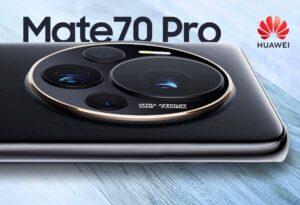Huawei has unveiled its latest flagship smartphone, the Mate 70, featuring the entirely homegrown HarmonyOS Next, signaling a bold move away from reliance on Google’s Android and Apple’s iOS. This effort is part of Huawei’s strategy to fortify its technological independence amid ongoing US sanctions.
Priced from 5,499 yuan ($760), the Mate 70 marks a significant milestone in Huawei’s software evolution, no longer supporting Android-based apps. Richard Yu, chairman of Huawei’s consumer business, emphasized the phone’s cutting-edge technology, stating, “We have always been copied but never surpassed.”
The transition to a proprietary operating system aims to strengthen Huawei’s position in the premium smartphone market. According to Canalys research analyst Lucas Zhong, this shift is crucial for maintaining momentum, securing consumer loyalty, and attracting users from other platforms. Huawei’s market share in China’s high-end smartphone segment has grown dramatically, increasing from 11% in Q3 2022 to 33% in Q3 2023, while Apple’s share fell from 72% to 52%.
Since being placed on a US trade blacklist in 2019, Huawei has pursued technological self-sufficiency vigorously. The first HarmonyOS, launched in August 2019, initially supported Android apps, but recent developments focus on building a unique ecosystem. The Mate 70 follows the successful launch of the Mate 60 Pro, which became emblematic of the US-China tech rivalry.
Eric Xu, Huawei’s former rotating chairman, outlined plans to develop 100,000 applications for HarmonyOS in the next year, emphasizing the importance of a robust app ecosystem. The company has already received over three million pre-orders for the Mate 70, underscoring strong market interest.
Mengmeng Zhang, a senior analyst at Counterpoint Research, anticipates more than 10 million Mate 70 shipments over its lifecycle. However, she notes that expanding the developer community and establishing a competitive ecosystem will take time.
As Huawei continues to challenge Western tech dominance, its strategic focus on an independent operating system marks a significant turning point, potentially positioning HarmonyOS as the world’s third major mobile operating system alongside iOS and Android.



